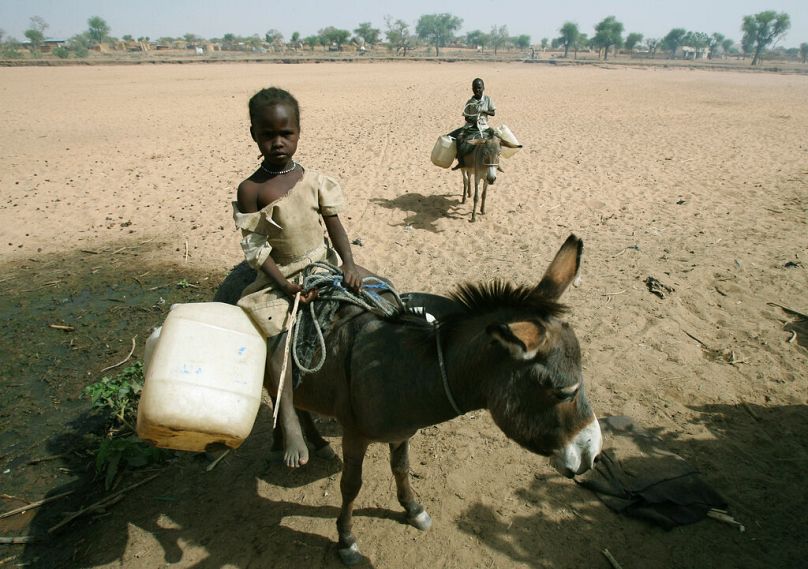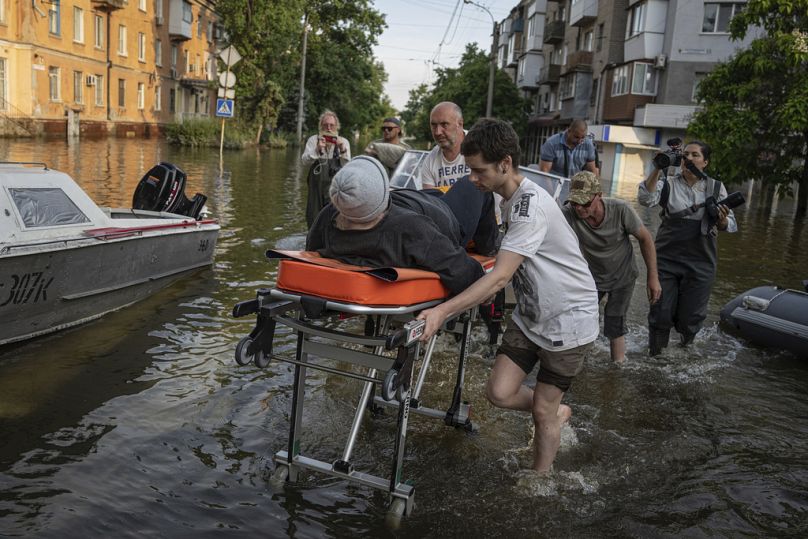The Rome Statute includes multiple provisions for environmental atrocities in both wartime and peacetime, yet the ICC has not prosecuted a single case focusing on mass harm to the environment. This has to change, Richard J. Rogers and Moneim Adam write.
For decades, the prospect of violent human conflict fuelled by the environmental stresses of climate change has been predicted by human rights experts.
Extreme weather and resource scarcity are now major factors in the increasing level of conflict witnessed across the globe.
Civilisation’s reliance on a stable and healthy living world has long been a favourite theme of science fiction writers, with environmental disasters that trigger conflict featuring in the dystopian worlds of writers like Margaret Attwood, Octavia E. Butler and even Dr. Seuss.
But while these fictional ‘eco-wars' were often written as allegories or warnings of future perils, they are now very much reality.
The connection between climate change and violence is real
The UN recognises climate change as a "threat multiplier" to international peace and security. This means that climate change both exacerbates the conditions that may lead to conflict and accelerates conflicts in their escalation into war.
While some parts of the world, often those who bear the greatest responsibility for the climate crisis, have been largely insulated from these effects, there are vast numbers of people living in areas of the globe that are right now experiencing climate-induced destabilisation and violence.
Back in 2007, the then UN Secretary-General, Ban Ki-Moon, identified climate change as one of the primary causes of the ongoing tragedy in Darfur, Sudan.
With annual rainfall in the region steadily declining since the 1980s, water scarcity is at the heart of the now half-century-long war, with over 300,000 Darfurians killed and two million displaced.
Since the conflict was referred to the International Criminal Court (ICC) by the United Nations Security Council, several individuals have been indicted.
The ICC should use its resources and expertise to analyse the connection between water stress and the violence in Darfur, and publicise this worrying trend.
It's time to start prosecuting those responsible
Armed conflict is, in turn, a source and driver of environmental harms. In Sudan, for example, armed groups seeking to profit from illegal gold mining have (with the help of the Wagner Group) polluted the land and water sources of entire communities with mercury and cyanide.
A more recent example can be seen in the ongoing conflict in Ukraine where the environmental consequences of the war will likely be felt for generations to come.
The destruction of the Nova Kakhovka Dam, the ecological impact of which has been repeatedly referred to as "ecocide", flooded vast areas of fertile land and raised alarms regarding the flushing of agrotoxins and petrochemicals into the Black Sea.
The ICC already possesses the legal means to prosecute those responsible for these crimes.
The Rome Statute includes multiple provisions for environmental atrocities in both wartime and peacetime, yet the court has not prosecuted a single case focusing on mass harm to the environment.
The ball is now in ICC's court
In our capacity as human rights lawyers and advocates, we are calling on the Office of the Prosecutor to start making full use of its powers under the Rome Statute to examine the role that climate change plays in driving and intensifying conflict and prioritise the prosecution of mass environmental crimes with respect to all situations, including Darfur.
This includes appointing an internal climate-security expert to advise on these cases; improving policies and investigative methods to include a forensic climate-security-based approach; submitting evidence demonstrating how issues related to climate security are relevant to the crimes being prosecuted; and prioritising the prosecution of environmental atrocity crimes.
Sudan's war serves as an alarming and prescient reminder of the causal link between environmental stress and devastation, and human conflict.
If the ICC is to retain its efficacy in service to humanity as we navigate a new reality, shaped as it is by ecological and climatic uncertainties, the Rome Statute must be amended to recognise a stand-alone crime that aims to prevent and punish the most severe harm to nature — ecocide.
Richard J. Rogers is a lawyer and Executive Director of Climate Counsel, and Moneim Adam is Director of Sudan Human Rights Hub.
At Euronews, we believe all views matter. Contact us at view@euronews.com to send pitches or submissions and be part of the conversation.













